Refine search
Actions for selected content:
23990 results in Ancient history
Conclusion
-
- Book:
- Law and Order in Ancient Athens
- Published online:
- 05 August 2016
- Print publication:
- 09 August 2016, pp 200-204
-
- Chapter
- Export citation
Dedication
-
- Book:
- Law and Order in Ancient Athens
- Published online:
- 05 August 2016
- Print publication:
- 09 August 2016, pp v-vi
-
- Chapter
- Export citation
TWO - Law Enforcement and Its Limits
- from PART ONE
-
- Book:
- Law and Order in Ancient Athens
- Published online:
- 05 August 2016
- Print publication:
- 09 August 2016, pp 47-74
-
- Chapter
- Export citation
Bibliography
-
- Book:
- Law and Order in Ancient Athens
- Published online:
- 05 August 2016
- Print publication:
- 09 August 2016, pp 205-222
-
- Chapter
- Export citation
Frontmatter
-
- Book:
- Law and Order in Ancient Athens
- Published online:
- 05 August 2016
- Print publication:
- 09 August 2016, pp i-iv
-
- Chapter
- Export citation
List of Abbreviations
-
- Book:
- Law and Order in Ancient Athens
- Published online:
- 05 August 2016
- Print publication:
- 09 August 2016, pp xi-xii
-
- Chapter
- Export citation
ONE - Informal Social Control and Its Limits
- from PART ONE
-
- Book:
- Law and Order in Ancient Athens
- Published online:
- 05 August 2016
- Print publication:
- 09 August 2016, pp 17-46
-
- Chapter
- Export citation
THREE - The Expressive Eff ect of Statutes
- from PART TWO
-
- Book:
- Law and Order in Ancient Athens
- Published online:
- 05 August 2016
- Print publication:
- 09 August 2016, pp 77-118
-
- Chapter
- Export citation
PART TWO
-
- Book:
- Law and Order in Ancient Athens
- Published online:
- 05 August 2016
- Print publication:
- 09 August 2016, pp 75-76
-
- Chapter
- Export citation
SIX - Transitional Justice in Athens: Law, Courts, and Norms
- from PART TWO
-
- Book:
- Law and Order in Ancient Athens
- Published online:
- 05 August 2016
- Print publication:
- 09 August 2016, pp 171-199
-
- Chapter
- Export citation
Index
-
- Book:
- Law and Order in Ancient Athens
- Published online:
- 05 August 2016
- Print publication:
- 09 August 2016, pp 223-226
-
- Chapter
- Export citation
Introduction: The Puzzle of Athenian Order
-
- Book:
- Law and Order in Ancient Athens
- Published online:
- 05 August 2016
- Print publication:
- 09 August 2016, pp 1-14
-
- Chapter
- Export citation
Acknowledgments
-
- Book:
- Law and Order in Ancient Athens
- Published online:
- 05 August 2016
- Print publication:
- 09 August 2016, pp ix-x
-
- Chapter
- Export citation
FIVE - Court Argument and the Shaping of Norms
- from PART TWO
-
- Book:
- Law and Order in Ancient Athens
- Published online:
- 05 August 2016
- Print publication:
- 09 August 2016, pp 150-170
-
- Chapter
- Export citation
Contents
-
- Book:
- Law and Order in Ancient Athens
- Published online:
- 05 August 2016
- Print publication:
- 09 August 2016, pp vii-viii
-
- Chapter
- Export citation
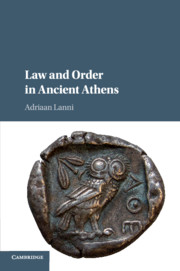
Law and Order in Ancient Athens
-
- Published online:
- 05 August 2016
- Print publication:
- 09 August 2016
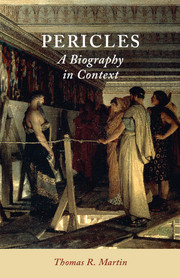
Pericles
- A Biography in Context
-
- Published online:
- 05 August 2016
- Print publication:
- 25 July 2016
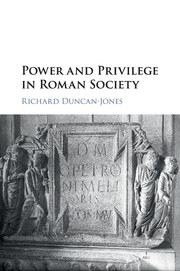
Power and Privilege in Roman Society
-
- Published online:
- 05 August 2016
- Print publication:
- 24 August 2016
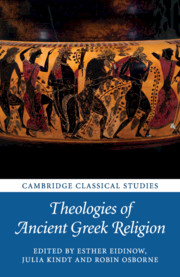
Theologies of Ancient Greek Religion
-
- Published online:
- 05 August 2016
- Print publication:
- 03 August 2016
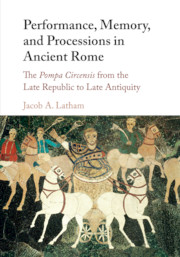
Performance, Memory, and Processions in Ancient Rome
- The Pompa Circensis from the Late Republic to Late Antiquity
-
- Published online:
- 05 August 2016
- Print publication:
- 16 August 2016
